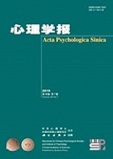The retrieval-extinction paradigm based on memory reconsolidation shares significant similarities with the traditional extinction paradigm in terms of operational procedures. Minor adjustments in the retrieval phase may prevent memory from entering reconsolidation, thereby losing the effect of sustained suppression of fear relapse. Studies have found that the duration of retrieval exposure can regulate the memory entering different stages, and its mechanism is related to the prediction error induced by retrieval. This study modifies the retrieval-extinction paradigm based on the traditional extinction paradigm by controlling the number of retrieval trials to change the retrieval exposure duration. It aims to explore the regulatory role of retrieval exposure duration on memory reconsolidation and extinction, and attempts to elucidate its mechanism by quantifying prediction error. The results showed that single-retrieval extinction group triggers memory reconsolidation and updating, double-retrieval extinction group is ineffective (results consistent with traditional extinction group), and Quadruple-retrieval extinction group enhances extinction memory strength. The quantified prediction error results supported these process differences. These findings are conducive to further revealing the regulatory factors of human fear memory reconsolidation and extinction.




